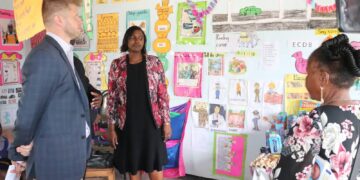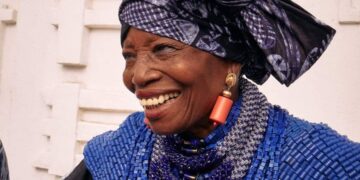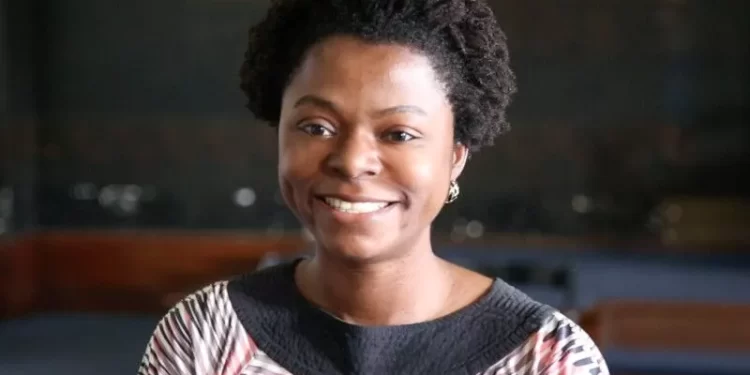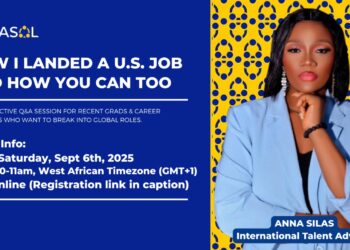Nigerian-born Ope Bukola left a career at Google to start her own business. She is the co-founder and CEO of Kibo School, an online university that offers affordable degrees to African students, starting with a Bachelor of Science in Computer Science. The company currently also offers a five-week introductory programming class called Try Kibo, which allows students to explore computing and online learning, and learn introductory Python and web development.
How we made it in Africa asked Bukola about Kibo’s business model, raising investment and the toughest part of building the company so far.
Was it a difficult decision to leave Google?
At Google, I worked as the product lead for Google Classroom, leading a team of software engineers, developers, marketers and others to build the top educational software in K12 markets. I loved my team and my role. But, I got to a point in my Google tenure where I felt as if I could take the risk of trying something new. I had full confidence in my ability as a product manager in big tech, and wanted to push myself to see if I could build from scratch.
It was not difficult to leave, but it was somewhat difficult to tell people that I was leaving what seemed like a dream job. Still, I had strong conviction and desire to step outside my comfort zone. Plus, after the upheaval of the pandemic and the last few years, I was encouraged and reminded that the world is uncertain, and I needed to make the most of whatever time I have. I’ve worked in edtech for a decade and fell in love with the field as a means of impacting Nigeria, where I was born, and Africa. So getting to work on Kibo felt appropriate.
Describe Kibo’s target market.
Our target market is young Africans who want to solve pressing problems with technology. Our degree programme aims to provide an alternative path to a university credential in a region where the demand for quality education is growing, yet supply is very constrained. We target people aged 16 and up who want to study computer science. Our free Try Kibo programmes are open to learners anywhere on the African continent. For now, our BSc degree is open to students who live in large cities in Nigeria (Abeokuta, Ibadan, Lagos), Ghana (Accra, Kumasi) and Kenya (Mombasa, Nairobi).
What is the cost of the degree programme?
The degree programme costs US$2,000 a year and the degree is designed to be completed in three years at a total cost of $6,000. We offer opportunities for learners to pay per term ($500 per term), and will also be working with financial institutions to help provide financing for those who cannot afford the full cost.
How has the curriculum been developed?
We’ve designed an integrated curriculum that will prepare students to thrive in a world that is remote-first, global, and where skills needed are rapidly evolving. Our curriculum teaches students to build using modern tools, but also provides them with a deep computer science foundation to adapt as tools change. It equips students to learn effectively and interact with others.
Our teaching and learning approach is designed to mimic real-world usage: students collaborate on projects, conduct self and peer evaluations, and apply their skills in the workplace through internships and industry challenges. We’ve developed it in consultation with advisors at companies including Shopify, Amazon, and Netflix to ensure it meets the needs of modern workplaces.
Who are your main competitors?
The online learning industry is globally competitive. I don’t see our competition as just in Africa, and I would say it is primarily global companies serving Africa. Honestly, our biggest competitors in Africa are legacy, brick and mortar institutions. Many of these institutions are plagued by low supply and low quality, and produce grads who struggle to find jobs. But they are still the choice that many students and families gravitate towards. In order to scale our work, we will have to convince those stakeholders that online can be a viable and better option to accomplish one’s mission.
Kibo recently raised $2 million in funding. Talk about the process of raising this investment.
The fundraising process was challenging. We had to convince investors, some of whom were not familiar with the African market, of the scale and size of the opportunity for online learning in Africa. We also had to find “patient capital” that understands edtech and the ways it differs from other parts of tech. It took many conversations to find those right-fit investors. Fortunately, we could draw on my experience and network, and the strength of our leadership team to be able to have many initial conversations. From there, it was a matter of finding those who aligned with us. We won the GSV Cup, the biggest edtech competition for start-ups and that brought some good visibility and momentum right as we were fundraising.
Describe the toughest part of building Kibo so far.
The most challenging part has also been the most rewarding part and that is building a team that can execute. Our team is incredible, and we’ve been able to do a lot with a little. But as we scale up, we need to recruit, hire, and successfully onboard people who are mission-aligned, entrepreneurial and able to make an impact at a start-up, and also able to work well in a globally distributed team. It’s very hard!
Originally by: JACO MARITZON
www.howwemadeitinafrica.com


















































































 EduTimes Africa, a product of Education Times Africa, is a magazine publication that aims to lend its support to close the yawning gap in Africa's educational development.
EduTimes Africa, a product of Education Times Africa, is a magazine publication that aims to lend its support to close the yawning gap in Africa's educational development.